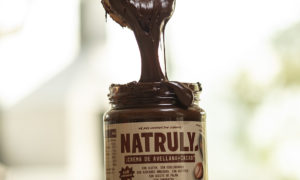Estimated reading time: 2 minute(s)
More and more the food industry is trying to attract buyers under the false labeling of organic products. The problem here isn’t how it’s made, because on paper it could be considered organic, the problem lies with what other components are used to make this product. In order to understand this better, take cacao powder this could be organic, the cacao could have been cultivated in the most natural way possible. But, what if in addition to the cacao powder they added 50% organic sugar, would it still be healthy?
Organic foods are those which follow the rules and guidelines set for the cultivation process. Meaning, fruits, and vegetables that are grown without the use of any chemical product that changes its composition or that of the soil. This makes the origin of these products better and in turn, provides many advantages to the environment. We are going to look at what these advantages are and also why we must always read the fine print of everything we buy.
- Fewer additives
- No toxic metals
- Less bacteria
- More respect for the environment by using fewer chemicals, less water, and selling in local establishments.
- Healthier: Natural powerful antioxidants
- Sustainable consumption: follows the natural cycle, avoiding overproduction.
For food to be considered organic it cannot be made with any unnatural products such as synthetic fertilizers, dyes, or growth hormones. Doing so has several consequences. The first of which is by not being allowed to alter the growth process of a given product it’s natural life cycle must then be respected. Vegetables are therefore grown at the time of year when they can yield the best results and don’t require an extra dose of chemicals or water. The same goes for meat: animals can’t be treated with antibiotics or fattened with chemicals to accelerate their growth.
Next, the impact on the environment is clear. Growing organic food requires much less water, and the transportation process pollutes less and is much less expensive. Using common-sense we can see that if we grow vegetables in accordance with their natural cycles and without altering them we cannot store them for long between the time they are gathered and when we actually eat them. These fruits and vegetables won’t last long days maybe, but not weeks especially in perfect condition. So where does that leave us? The answer is to what’s called local consumption.
If you want to buy organic fruits and vegetables surely the first thought that comes to mind is to go to your local market, or to those local, small greengrocers that guarantee 100% natural products. All of this forms part of the local economy which is much more sustainable for the environment as you don’t need large trucks transporting the goods, wasting liters of fuel, or having cold storage containers.
The lie: Organic products aren’t always healthy
We can understand this in a variety of ways. One is that not all things provided to us by nature are necessarily good for us. There are natural but poisonous plants that are obviously unhealthy. For example, mushrooms grow in the open air in the mountains free of chemicals, however, it takes a great amount of knowledge to know which ones to pick. There are totally healthy animals, that are not poorly fed or sick that we simply can’t eat. Natural is not always best.
Sugar, contrary to sweeteners is completely natural. It’s one substance that nature offers us via sugar cane, but we usually say it’s poison. It causes unnecessary spikes in blood glucose levels and is used on a massive scale in the industrial food industry, even when it’s not necessary.
We must pay close attention to the composition of our food. We might find at the grocery store some cereals with supposedly ‘organic nuts and fruits, or some cookies made from organic flour but that really is full of sugar and artificial preservatives. The same goes for a fruit smoothie that has more chemical sweeteners than fruit. Or with a product that has an organic meat base, but contains many other harmful substances.











